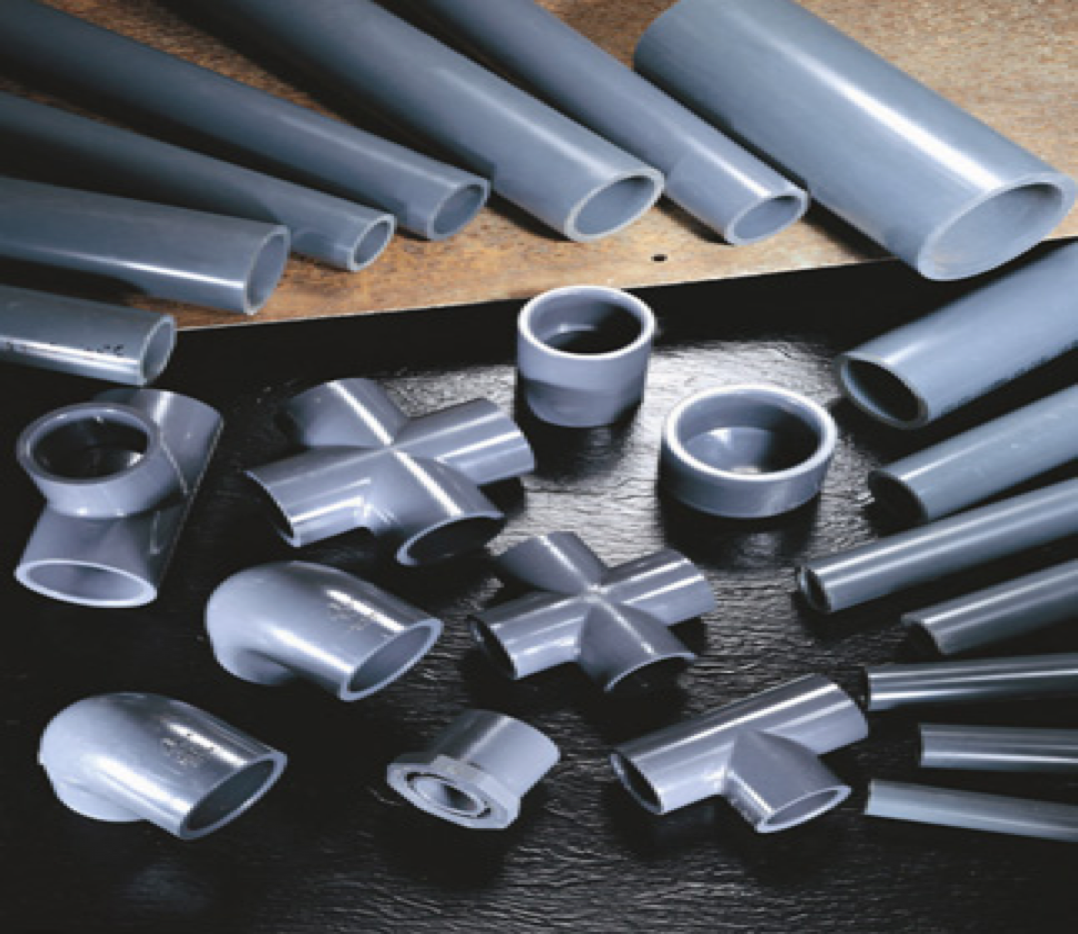Thermoplastics - PVC
Thermoplastics - PVC
Polyvinyl chloride (PVC) is an economical and versatile material that can be used in a variety of applications. It is used in the building and construction, health care, electronics, automobile and other sectors, in products ranging from piping and siding, blood bags and tubing, to wire and cable insulation, windshield system components and more.
Landmark carries a range of PVC products. Do contact us to find out more about our range of products available for you.
| PVC |
|---|
| • Proven material made of PVC-U |
| • Proven track record in tank and chemical equipment construction |
| • Chemical resistance |
| • High rigidity |
| • UV-stabilised and weather resistant (PVC-CAW-UV) |
| • Extensive standard range of products |
| PVC CLEAR |
|---|
| • Excellent resistance to chemicals |
| • High fire rating: Suitable for populated areas |
| • High light transmission |
| • “Water Clear” Clarity |
| • Optional high-impact and UV resistance |
| • Formable: can be thermoformed, vacuum formed, bent hot or cold, fabricated |
| PVC-AS CLEAR |
|---|
| A “clean environment” is increasingly required in manufacturing and research & development facilities all over the world. The use of Static Dissipative materials has become indispensable in many industrial fields, such as semiconductor, liquid crystal display, electronics, medical, pharmaceutical, food processing, precision machinery, and biotechnology. |
| PVC FM4910 |
|---|
| PVC FM4910 listed materials are approved materials that have gone through appropriate screening and certification. The approved material has fire prevention properties and is suitable for the cabinets and various pieces of process equipment used to manufacture semiconductors. The materials features include being an excellent fire-retardant, and also electrical isolation properties |
| CPVC |
|---|
| Heat resistant PVC plate is a laminated plate of heat resistant chlorinated polyvinyl chloride resin (C-PVC) manufactured by calender pressing. This heat resistant PVC plate boasts properties of the highest heat resistance (Vicat softening temperature of 107°C) |














